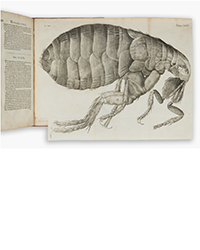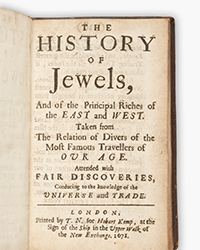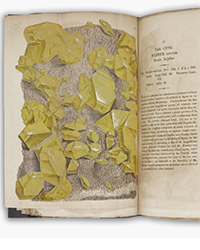Rare Book Monthly
Articles - September - 2010 Issue
A Court Decision in a Century-Old Battle for a Library
One thing Rabbi Schneerson was not able to achieve was the return of the books or manuscripts taken from his predecessors. The books seized by the Communists in the 1920s, now referred to as the "Library," are held by the Russian Federation as successors to the Soviet Union. The documents taken to Poland, known as the "Archive," are also held by the Russians, though they arrived by a different route. When the sixth Rebbe was forced to flee Poland in 1940, they were seized by the Nazis. When the Nazis were defeated, they were taken by the Soviets, who brought them back to Russia, where they now remain together with the Library.
Chabad-Lubavitch, naturally, would like their sacred material back, but such a goal seemed impossible during the Soviet era. However, with the opening of that old regime to the West under Gorbachev, and then its complete disintegration, hopes rose for a return. In 1992, President George H.W. Bush secured a pledge from Russian Federation President Boris Yeltsin that the material would be returned. Yeltsin never followed through, nor has his successors. In 2006, Chabad-Lubavitch went to court in the U.S. to demand the material. The Russians opposed their petition.
The first round was a split decision. The court found that the Archive, the material taken first by the Nazis, belonged to the group and ordered its return. The Library, it concluded, was legally taken by the Russians' predecessors. On appeal, Chabad won the right to both groups of documents. However, at this point, the Russians bowed out of the proceedings. They now claimed the U.S. courts had no jurisdiction over property held in Russia by the Russian government. They ignored further proceedings.
The Russians' failure to contest led to this latest judgment, a default judgment in favor of Chabad. Now the group has legal title to all of the material under U.S. law, but it's not in the U.S. The Russians even claim that a handful of the books borrowed from them by Chabad in the 1990s but never returned should be given back to them. There is not much a U.S. court can do to seize documents in another country, but there are possible remedies in terms of seizing other Russian assets that are in America. This has the potential of becoming a messy international situation that would not be much good for either side. It calls for some behind the scenes accommodations, such as seemingly worked out by Presidents Bush and Yeltsin 18 years ago. The material would appear to be of little interest to the Russians except for its monetary worth. Hopefully their needs and national pride can be assuaged in a way that keeps everyone happy, including those for whom this material is sacred.
Chabad's attorneys issued a strongly-worded statement, saying, "[t]his victory is a triumph for justice for the Jewish people and others who abhor the Nazi and Soviet exploitation of victims of genocide, and the unlawful and immoral suppression of religious faith by the current Russian government." The other side's position was recently reported by Pravda, once the official organ of the Soviet Communist Party. Pravda has changed a lot since the height of the Cold War. Its statements are more moderate and it is far less antagonistic to everything western. Alongside the article in their online edition is a photo gallery, not with pictures of happy factory workers and contented farmers, toiling away for the benefit of party, people, and fatherland, but of a scantily clad model described as "the biggest fan of group sex," and American capitalist Paris Hilton on the beach. This is not your father's Pravda.
Pravda described the reaction of the Russian Foreign Ministry as "harsh." The Ministry claimed, "the courts of one country cannot consider claims against other countries and their property without the express consent of the latter." It described the judgment as "null and void." The Russians stated that the property never belonged to the American Chabad organization, and was properly nationalized as the Schneerson family had left the country leaving no heirs. However, Pravda did understand why Chabad would want to obtain its "shrine," and suggested the American courts rule that this is outside of their jurisdiction, and encourage the plaintiffs to seek redress in Russian courts. This may not strike Chabad Lubavitch as a level playing ground, but hopefully some sort of deal can be worked out behind the scenes rather than letting this fester into an international incident.



![<b>Heritage, Dec. 15:</b> John Donne. <i>Poems, By J. D. With Elegies on the Author's Death.</i> London: M[iles]. F[lesher]. for John Marriot, 1633. <b>Heritage, Dec. 15:</b> John Donne. <i>Poems, By J. D. With Elegies on the Author's Death.</i> London: M[iles]. F[lesher]. for John Marriot, 1633.](https://ae-files.s3.amazonaws.com/AdvertisementPhotos/8caddaea-4c1f-47a7-9455-62f53af36e3f.jpg)
























